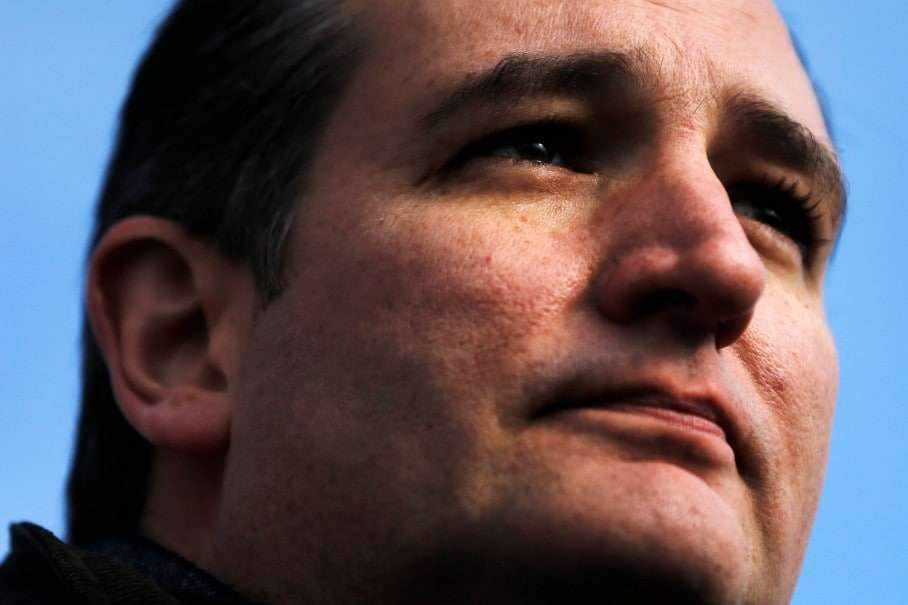The Volokh Conspiracy
Mostly law professors | Sometimes contrarian | Often libertarian | Always independent
Debating whether Ted Cruz is a 'natural born citizen' (UPDATED)

Is Sen. Ted Cruz (R-Tex.) a "natural born citizen" eligible to be elected president? I've argued that he is. Although Cruz was born in Canada, his mother was a U.S. citizen and, under the relevant federal statute in force at the time, Cruz was a U.S. citizen at birth. Former solicitors general Neal Katyal and Paul Clement reached the same conclusion, as has Randy Barnett. (See also this post Barnett wrote in 2013.)
Harvard law professor Laurence Tribe is not so sure, telling the Guardian that the issue is unsettled. In 2008, however, Tribe co-authored a memo with noted conservative lawyer Ted Olson on Sen. John McCain's (R-Ariz.) eligibility to be elected president in which they argued that "children born abroad to U.S. citizens are themselves U.S. citizens," and that this is sufficient to establish that an individual is a "natural born" citizen eligible to be president. (Tribe and Olson also argued McCain was eligible having been born in U.S. sovereign territory - the Panama Canal Zone - but stressed that this was a separate and "independent" basis upon which to conclude McCain was a "natural born" citizen.)
Some other legal scholars do not think Cruz is a "natural born citizen," however. Mary Brigid McManamon argued Cruz is not eligible in The Post. Robert Natelson, while not quite endorsing McManamon's conclusion, writes an extensive post explaining why such arguments need to be taken seriously, particularly by originalists. (See also Lawrence Solum's 2010 essay on the subject.)
In the Los Angeles Times, Thomas Lee argues whether Cruz is eligible to be elected president depends upon one's approach to constitutional interpretation. Cruz is eligible under a textualist or "living constitution" approach, according to Lee, but not under an originalist approach to constitutional interpretation. Perhaps ironically, Lee notes, originalism is the approach to constitutional interpretation Cruz claims to support.
Michael Ramsey takes issue with Lee's analysis, suggesting that the phrase "natural born citizen" should be understood to apply to "those to whom parliament/Congress gave subjectship/citizenship at birth." This, Ramsey argues, provides the best originalist account of the meaning of the relevant phrase, and he makes this case at length in a new paper he has posted to SSRN. (UPDATE: Ramsey has more to say about Lee's analysis here.)
Natelson is correct that I (and others) may have been too quick to suggest that this issue is completely settled. The historical materials are not as clear as one might like. Nonetheless, I think that Ramsey's account provides the best understanding of the meaning of "natural born citizen," and that this account is also the most consistent with historical practice. Plausible arguments can be made to the contrary, but they are anything but conclusive.
While the Supreme Court has not weighed in on the issue, Cruz is not the first person to run for president who was born outside of the United States. Several prior candidates were born in U.S. territories, rather than states (including McCain and Sen. Barry Goldwater), and George Romney ran for president in 1968 despite having been born in Mexico. For these reasons, I would be quite surprised were a court to conclude that Cruz is ineligible. Whether Cruz is qualified to be president is a question for voters to decide.
UPDATE: Professor Laurence Tribe has an op-ed in the Boston Globe highlighting the tension between Ted Cruz's endorsement of originalist constitutional interpretation and his claim to be eligible to run for President. It also highlights this academic paper on the subject.
Interestingly enough, Tribe claims in the op-ed that, under an originalist interpretation, only those born on U.S. soil are "natural born" for constitutional purposes. Note that Tribe endorsed the view that being born to U.S. citizen parents was an "independent" basis for being considered "natural born" in his co-authored memo on McCain's eligibility. Is Tribe being inconsistent? Perhaps, but not necessarily. The McCain memo did not confine itself to an originalist interpretation and considered the legal question more broadly. Is Tribe correct? Not if one accepts the arguments outlined by Barnett and Ramsey above.
UPDATE: Michael Ramsey comments on Mary Brigid McManamon's op-ed here.


Show Comments (0)